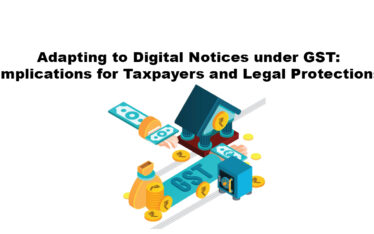The announcement of extension of tax filing due dates has provided a major relief to the tax payers who were facing the challenge of meeting the statutory and regulatory compliances owing to COVID-19 Pandemic. This will give more time to taxpayers to furnish their income tax returns.
Last Date of Income Tax Return Filing for AY 2020-21 (Non-Audit Cases)
The common due date of filing the Income Tax Return by Assesse whose Books of Account are not required to be audited is July 31st following the end of the financial year. Note: CBDT has extended this due date for non-audit cases till 31st December 2020.
Last Date of Income Tax Return Filing for AY 2020-21 (Audit Cases)
The general due date for filing the Income Tax Return by Assesse (Audit Cases) is 30th September but finance ministry has extended it till 31st January 2021.
While the deadline is now extended and couple of months’ time is available, you should not kick the can down the road and leave this task for the last minute. Begin gathering all the necessary information and documents and complete it while you have time on your side.
Keep these 6 things in mind…
1. Keep all documents handy
Not having all the key documents at one place is one of the main causes that result in mistakes while filing the ITR. So, before you sit for filing the ITR, ensure that all important documents like bank statements, Form 16, Form 26 AS, details of tax-saving investments, etc. are organized in one place.
2. Choose the right ITR form
This year the Income Tax (IT) Department has notified seven forms from ITR 1 to ITR 7. Select the right one, based on your income level, sources of income, and other criteria.
However, it’s not uncommon for taxpayers to pick a wrong ITR form in the last-minute rush. The Income Tax department does allow for a few days to rectify such errors. However, not amending the returns within the extra time provided by the IT department can make it invalid and it may be considered as a case similar to not filing the ITR at all.
3. Report income from all the sources
A taxpayer may earn income from multiple sources, and it is important to disclose all types of income while filing the ITR. For example, a salaried person may get salary income along with income from bank interest, dividends, capital gains, and income from freelancing business, house rental property, so on and so forth. All such income should be adequately disclosed in the relevant ITR form.
Another point to note here is that some taxpayers earn exempt income; however, they should also show it in their ITR under the relevant space to avoid any query from the IT department in the future.
4. Claim deductions not included in Form 16
There are some cases in which a taxpayer isn’t able to report details of tax-saving investments to the employer due to which they don’t get reflected in his/her Form 16. So, if you solely rely on your Form 16 to file your returns, you could easily miss out including such investments in the ITR. As a result, ensure you keep a list of any such deductions not reported in your Form 16 and claim it while filing the ITR.
5. Reconcile income with Form 26 AS
If the income mentioned by you in the ITR doesn’t match with the Form 26AS, there are chances of getting a query from the IT department seeking a reason for such discrepancy. As such, verify properly before filing the ITR.
6. Keep GST return details ready
If you are a professional or a businessperson registered under the Goods and Services Tax (GST), ensure you keep the GST details of FY 2019-20 available while filing the ITR. Do note that you will have to report GST details of all your businesses. While filing the ITR, you will also have to provide turnover as reported under the GSTR. A mismatch between ITR and GSTR can result in a query from the IT department. So, you should keep the GST turnover statement ready while filing the ITR.
While filing the return, one needs to watch out for several mistakes that are common but can be avoided by exercising a little care. For instance, people often select the wrong assessment year, or fill incorrect personal details such as mailing address, phone number, etc. Furnish your latest details.If the taxpayer fails to correct the defect within the time allowed by the assessing officer, the defective ITR becomes invalid.
Returns filed at the last moment are at times incorrect or incomplete; leading to serious consequences, thus avoid the last minute rush.





